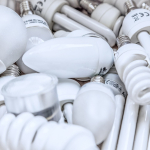Inflation can significantly impact your savings, making it crucial to adapt your financial strategies. As prices rise, maintaining your financial goals might seem challenging, but with the right approach, you can effectively navigate these economic fluctuations. This post will explore key techniques to adjust your budget, smart investment options during inflation, and practical tips for maintaining financial discipline. By staying informed and proactive, you can safeguard your savings and ensure you remain on track despite the economic pressures.
Understanding the Impact of Inflation on Savings

Inflation can significantly reduce the purchasing power of your savings. As prices rise, what you could buy for $100 last year may cost more today. Here are a few key impacts of inflation on your savings:
- Decreased Value: When inflation increases, the value of cash savings diminishes. For example, if inflation is at 3% and you have $10,000 in a savings account earning 1%, you lose $200 in purchasing power annually.
- Higher Costs of Living: As everyday expenses climb, maintaining your standard of living often requires more financial resources. Hence, a careful reevaluation of your budget becomes essential.
- Interest Rates Aren’t Enough: Traditional savings accounts often yield low-interest rates that may not keep pace with inflation. This discrepancy can lead to a negative return on savings, meaning you might actually lose money over time if they sit stagnant.
To combat these effects, it’s essential to proactively manage your savings and consider alternative strategies for maintaining your financial goals amidst rising inflation pressures.
Strategies to Adjust Your Budget During Inflation

Inflation can significantly erode your purchasing power, making it essential to adjust your budget accordingly. Here are some effective strategies to help you stay on track with your financial goals:
- Reevaluate Your Priorities: Identify essential versus non-essential expenses. Focus on what truly matters, such as housing, food, and healthcare.
- Cut Back on Discretionary Spending: Limit expenditures on entertainment, dining, and luxury items. Consider cost-effective alternatives, like cooking at home or enjoying free local events.
- Shop Smart: Use coupons, take advantage of sales, and compare prices. Buying in bulk can also lead to long-term savings.
- Track Your Spending: Regularly review your expenses. Use budgeting apps or spreadsheets to identify trends and areas for improvement.
- Increase Your Income: Explore side gigs or freelance opportunities. Every additional dollar can make a difference in maintaining your financial health.
By implementing these strategies, you can effectively adjust your budget to combat inflation and keep moving toward your financial goals.
Investment Options to Consider in an Inflating Economy
When inflation rises, your savings can lose purchasing power. Thus, exploring investment options becomes crucial. Here are some effective strategies:
- Stocks: Historically, equities have outpaced inflation by providing higher returns over the long term. Look for companies with strong pricing power.
- Real Estate: Real assets often appreciate in value during inflation, making real estate a solid hedge. Consider rental properties or real estate investment trusts (REITs).
- Commodities: Investing in commodities like gold and silver can be beneficial as they usually retain value during economic downturns.
- Treasury Inflation-Protected Securities (TIPS): These government bonds adjust your principal based on inflation rates, ensuring your investment keeps pace with rising prices.
| Investment Type | Inflation Hedge | Risk Level |
|---|---|---|
| Stocks | Moderate | High |
| Real Estate | High | Moderate |
| Commodities | Moderate | High |
| TIPS | High | Low |
By diversifying your portfolio with these options, you can better protect your financial future while navigating inflation.
Tips for Maintaining Financial Discipline and Focus
Maintaining financial discipline during inflation can be challenging, yet it’s crucial for achieving your financial goals. Here are practical tips to help you stay focused:
- Set Clear Goals: Define specific, measurable, attainable, relevant, and time-bound (SMART) goals. This clarity keeps your motivation high.
- Regularly Review Your Budget: Adjust your budget to reflect rising costs. Frequent reviews help identify unnecessary expenses that can be cut.
- Automate Savings: Set up automatic transfers to your savings or investment accounts. This “pay yourself first” approach ensures you save before spending.
- Limit Impulse Purchases: Create a cooling-off period for non-essential purchases. Wait 24 hours before buying to evaluate the necessity.
- Stay Informed: Regularly read financial news and articles. Knowledge of market trends helps you make informed decisions.
- Find an Accountability Partner: Share your financial goals with someone who can help keep you accountable and motivated.
By implementing these strategies, you can navigate the challenges of inflation while keeping your financial goals on track.
Frequently Asked Questions
What are effective strategies for saving during inflation?
During inflation, it’s crucial to adapt your saving strategies to protect your finances. Some effective strategies include prioritizing essential expenses, adopting a budget that accounts for rising costs, and seeking high-yield savings accounts that offer better interest rates. Additionally, consider investing in assets like real estate or commodities that typically outperform inflation. Regularly review your financial goals and adjust your savings potentially by reducing discretionary spending.
How can I maintain my financial goals when prices are rising?
To maintain your financial goals amidst rising prices, regularly reassess and adjust your budget. Focus on eliminating non-essential expenses and explore alternative solutions like bulk purchasing or using coupons. It may also be beneficial to increase your income through side jobs or freelance work. Keeping an emergency fund can provide a buffer against unexpected costs, allowing you to stay on track with your savings goals and investment plans.
What types of investments are best during inflationary periods?
During inflationary periods, certain investments tend to perform better. These include commodities like gold and silver, which often retain their value, as well as real estate, which can provide rental income and price appreciation over time. Stocks in sectors like energy and utilities may also be more resilient. Consider diversifying your portfolio to include these asset types to hedge against inflation and protect your purchasing power.
Is it wise to take on debt during inflation?
Taking on debt during inflation requires careful consideration. Fixed-rate loans may be advantageous during inflation since repayment amounts remain constant even as prices rise. However, variable-rate loans can become costlier if interest rates increase. Prioritize paying down high-interest debt and consider the necessity of new debts, ensuring they align with long-term financial goals. Weigh the potential benefits against the economic environment to make informed decisions.














Comments are closed.